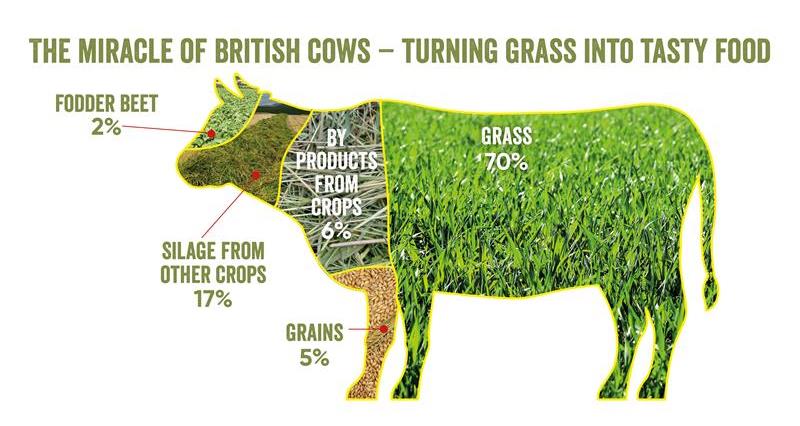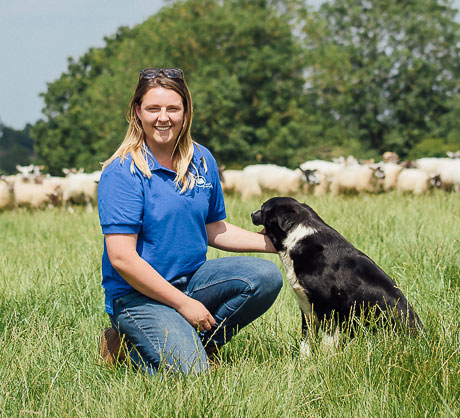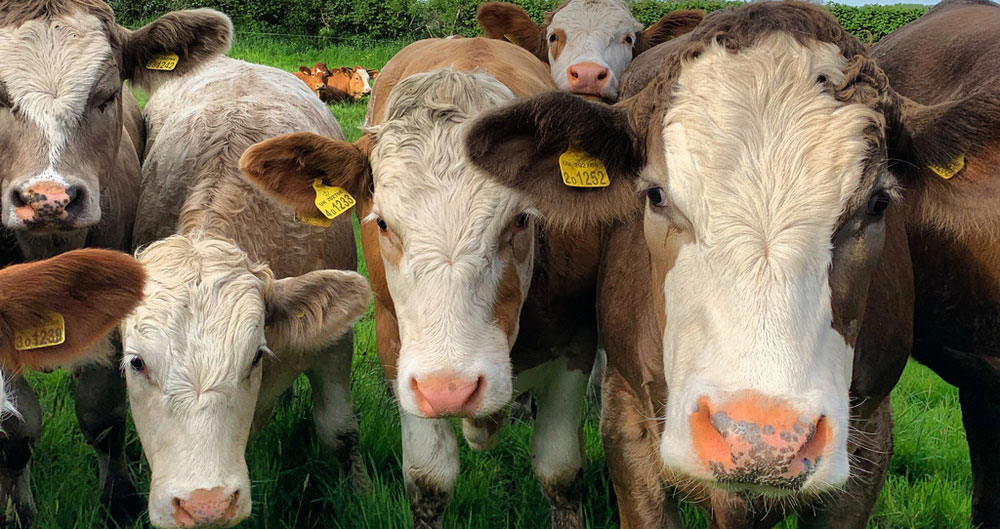With climate change, net zero and farming having widespread coverage in the media over recent weeks, young farmer and Countryside columnist Charlie Beaty sets the record straight about the real impact of livestock on the climate, and whether eating seasonally could be the answer to the biggest challenge of our time. She writes:
Each year, 82 million more people walk the earth. And it’s estimated that, by 2050, the global population will be nearly 10 billion. Whether you’re comfortable with that or not, that’s a lot of new mouths to feed and puts the issue of ‘sustainable agriculture’ in sharp focus. It’ll likely mean that we’ll need to increase food production by around 70% by 2050.
Here at home, more than two thirds of land is dedicated to agriculture, yet, surprisingly, we import nearly 40% of our food. As it becomes increasingly easy to travel abroad, we have all got used to a much larger variety of foodstuffs, available all year round. But this is one of the biggest issues. With supermarkets able to import fresh produce from all over the world, all year round, we’re perhaps losing touch with the virtues of seasonal produce. Being able to only get strawberries through the summer months is a thing of the past, as we often now import them in from the likes of Spain, Israel and Morocco. Bananas, avocados and oranges are imported throughout the year and are found in most kitchens up and down the country.
Back in July, a UN report stated that red meat consumption is one of the leading causes of climate change. On the contrary, eating well-managed, grass-fed and locally produced red meat is actually one of the best ways you can help combat climate change. Here in the UK, a mere 10% of greenhouse gas emissions are from agriculture, compared to 27% from transport industries. So how on earth does agriculture get so much of the blame for climate change?
What if I was to tell you that British agriculture was actually part of the climate change solution? It is known that more than two billion tonnes of carbon are stored deep under the UK’s grasslands. The highest carbon stocks have been found beneath grasslands that have been farmed at an intermediate level, moderately grazed, with low levels of fertiliser input.

Unintended consequences
60% of UK’s carbon stores are beneath grassland, which covers around a third of the UK’s surface. The carbon stored is extremely sensitive to the way the land is farmed. So, if the population of the UK were to go vegan tomorrow, there’d be no call for the stock grazing these grasslands. But we’d still need to provide the same amount of food for a growing population and much of that grassland would be lost in order to plant crops. In doing so, there would be a huge decline in carbon stocks, as they are leaked back into the atmosphere.
The grassland that couldn’t be converted into cropping land would be left to its own devices. It would become overgrown and unproductive and quickly lose its ability to absorb carbon from the atmosphere.
So, what’s the answer? Changing our eating habits really could be the key, just not in the way you think. Don’t go cutting down on red meat, but, instead, just take a minute to think about where it’s come from. Look for local (British at least!), sustainable produce. To sustainably feed our growing population, we absolutely need to support our farmers. Without your support, farmers will struggle to maintain the fantastic standards of food production they currently achieve. Produce bearing the Red Tractor logo is a really good place to start! Use the Seasonal Guide to British fruit & veg to help you find out when British fruit and veg is in season and available to buy.
So, if you really want to save the planet - keep meat on your plates, and pair it with some fantastic seasonal British veggies!
About Charlie

Charlie Beaty is a third generation farmer from Warwickshire where she and her family farm cattle, sheep and crops.
Follow Charlie on Twitter - @GTFarmGirl and Instagram - globetrottingfarmgirl
